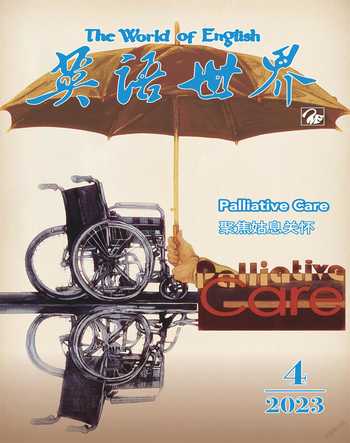A Portrayal of the Painted Pleasure Boat Studio画舫斋记
欧阳修/文 宋定宇/译注
予至滑之三月,即其署東偏之室,治为燕私之居,而名曰画舫斋。斋广一室,其深七室,以户相通,凡入予室者如入乎舟中。其温室之奥,则穴其上以为明;其虚室之疏以达,则栏槛其两旁以为坐立之倚。凡偃休于吾斋者,又如偃休乎舟中。山石崷崒,佳花美木之植列于两檐之外,又似泛乎中流,而左山右林之相映,皆可爱者。故因以舟名焉。
Three months after assuming office in the Prefecture of Hua, I renovated the wing rooms2 in the east of the Prefectural Yamen into a dwelling place for me, and named it “Painted Pleasure Boat Studio”. The Studio measures the size of one room in width and seven rooms in depth3. All the rooms are interconnected with doors. Whoever enters the studio would feel as if he were on board a boat. The inner rooms being poorly lit, windows were chiseled in its ceiling to let in light. The outer well-illuminated and commodious rooms were installed with rails to sit on or lean against. Anyone who puts up at my studio would fancy as if he were ensconced on a boat. Outside the studio were lofty and forbidding rockeries, and lush grass and delightful trees flanking the areas beneath the two opposite sides of the eave, evoking a feeling4 of sailing on the river, with hills on the left bank and woods on the right setting off each other. They are both lovesome, so I labeled the studio Painted Pleasure Boat.
《周易》之象,至于履险蹈难,必曰涉川。盖舟之为物,所以济险难,而非安居之用也。今予治斋于署,以为燕安,而反以舟名之,岂不戾哉?矧予又尝以罪谪走江湖间,自汴绝淮,浮于大江,至于巴峡,转而以入于汉沔,计其水行几万余里。其羁穷不幸而卒遭风波之恐,往往叫号神明以脱须臾之命者数矣。当其恐时,顾视前后,凡舟之人非为商贾则必仕宦,因窃自叹,以谓非冒利与不得已者孰肯至是哉?赖天之惠,全活其生,今得除去宿负列官于朝,以来是州,饱廪食而安署居。追思曩时山川所历,舟楫之危,蛟鼍之出没,波涛之汹欻,宜其寝惊而梦愕。而乃忘其险阻,犹以舟名其斋,岂真乐于舟居者邪!然予闻古之人,有逃世远去江湖之上终身而不肯反者,其必有所乐也。苟非冒利于险,有罪而不得已,使顺风恬波,傲然枕席之上,一日而千里,则舟之行岂不乐哉!顾予诚有所未暇,而舫者宴嬉之舟也,故以名予斋,奚曰不宜?
Any hexagram in the book of I Ching (The Book of Changes), if involving surmounting difficulties and hardships, is always termed “forcing the river”, probably because a boat is used as a rescue, rather than a place for settlement. Though my residence at the Yamen was built for accommodation, I dubbed it “Painted Pleasure Boat”. Does this run counter to the common sense? Demoted for conviction, I have travelled rivers and lakes, starting from the Bian River, crossing the Huai River, drifting down the Yangtze River to the Ba Gorge, and then moving to the Han River and the Mian River, covering a trip of tens of thousands li. The trying trip was rife with adversities. It happened quite a few times that I, when caught in a sudden storm, invoked5 the divinities help to lift me out of danger for the very moment. When seized with terror, I eyed the passengers aboard from the bow to the stern, only to find that they were either officials or businesspeople. I sighed silently that who would come here if not for personal interests or if they still have the right to choose. It is only by the grace of heaven that I can manage to survive. I was cleared of the unfounded charges, secured a position at the imperial court, and came here, the Prefecture of Hua, to feed on a surfeit of official grain6 and live comfortably in an official building. I was often startled from sleep when bringing to mind my travels through rivers and over mountains, during which I had to negotiate the danger of sailing, the faceoff with ferocious water predators7, and the surging waves. I, however, oblivious of the sufferings, even call my studio “boat”. Do I really enjoy the life on board a boat? I heard say that some people in ancient times renounced the world and left the Rivers and Lakes (a byword referring to the mundane world)8, never seeking to return. They must have found their pleasure in reclusion. If a traveller does not venture for gains or knows no alternative on charges, a boat trip would be a great pleasure if he, lying in bed, can travel downwind a thousand li on a peaceful watercourse. I have been having my hands full, and a painted pleasure boat serves for entertainment and rest, so how can one think it improper to name my studio boat?
予友蔡君谟善大书,颇怪伟,将乞其大字以题于楹。惧其疑予之所以名斋者,故具以云。又因以置于壁。
I asked my friend Cai Junmo, an expert in writing large characters which are vigorous and majestic, to inscribe calligraphic characters on the lintel of the studio. Fearing that he would throw doubt on the name of my studio, I penned this article for elaboration and mounted it on the wall.
1《画舫斋记》乃北宋文学家欧阳修被贬滑州(今滑县)任职时所写的一篇抒情散文。文章以景写情,阐释了欧阳修将居所命名为“画舫斋”之因,记述了其被貶途中的艰辛旅程,也展现了身处逆境,仍豁达旷然的心态。 2偏室可译为wing room,亦可以译为side room。
3住房的进深指住房从前到后的长度,在英语中称为depth,不宜译为length。在翻译“斋广一室,其深七室”时,译文尽量力求准确。也可以简短翻译为:The Studio is one room wide and seven rooms deep. is亦可用measures或者stands代替。 4“又似泛乎中流”中的“似”,译者没有译为like一词,用了evoking a feeling,避免了老是用like表示“像”“似”。
5此处使用invoke来表示寻求帮助。 6采用直译法将“饱廪食”译为feed on a surfeit of official grain,亦可稍作变通译为live a well-off life on official salaries。 7采用“泛化”的方式将“蛟鼍”译为water predators,这样更符合原文的意境,因为作者并非真指就是这两种动物,而是采用提喻的方法,指水中的凶猛动物。 8采用直译加同位阐释的方式翻译“逃世远去江湖之上”,既保留原文的风采,亦能让目的语读者了解“江湖”的含义。

